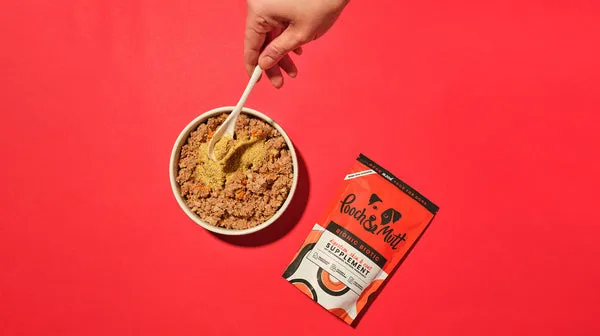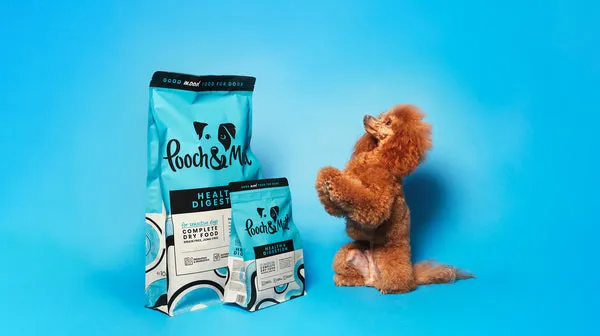Colitis in dogs is a distressing condition that significantly impacts their digestive health and overall well-being. When your canine companion is diagnosed with inflammation of the colon, one of the most crucial aspects of their treatment and management involves a specialized diet. The right nutrition can be a powerful tool in soothing their sensitive digestive system, reducing the severity of symptoms like diarrhea, and promoting recovery. This guide will delve into the specifics of selecting the Best Dog Food For Dogs With Colitis, focusing on what to include, what to avoid, and how to transition your dog to a colitis-friendly diet.
Understanding Colitis in Dogs
Colitis is characterized by inflammation of the colon, the final section of the large intestine. This inflammation leads to significant digestive upset, most commonly severe diarrhea, which may be accompanied by mucus or even blood. In some cases, dogs might also experience constipation. The causes of colitis can vary, ranging from food allergies and intolerances, infections, autoimmune disorders, to environmental stressors. Regardless of the underlying cause, diet plays a pivotal role in managing the condition and preventing its exacerbation.
The Crucial Role of Diet in Managing Colitis
Diet is not just a supportive measure but an integral part of managing colitis in dogs. Continuing to feed foods that trigger inflammation or are difficult to digest will perpetuate the cycle of bowel issues. A thoughtfully chosen diet can help regulate digestion, improve stool consistency, and reduce discomfort. Therefore, once a colitis diagnosis is made, reassessing and adjusting your dog’s food intake is a priority.
Nutritional Requirements for Dogs with Colitis
A colitis-friendly diet for dogs typically emphasizes several key nutritional components:
- High in Fiber: Both soluble and insoluble fibers are essential for regulating digestion. They aid in promoting regular bowel movements and improving stool consistency, which is critical for dogs experiencing diarrhea. However, it’s important to note that some dogs may react negatively to excessive fiber, so consulting with your veterinarian to find the right balance is advised.
- Easily Digestible Proteins: Protein is a fundamental building block for dogs. For those with colitis, lean and easily digestible protein sources are crucial. This means the dog’s body doesn’t have to work excessively hard to break down and absorb these proteins, minimizing digestive stress.
- Low Fat Content: High-fat foods can significantly aggravate the gut, colon, and overall digestive system. Inflammation, as seen in colitis, can impair the absorption of fats, making low-fat options a necessity.
 A black and white long haired dog, lay down looking glum, against a bright blue background
A black and white long haired dog, lay down looking glum, against a bright blue background
What Kind of Food Can You Feed a Dog with Colitis?
When selecting food for a dog with colitis, several options can be considered in consultation with your veterinarian:
Veterinarian-Recommended Therapeutic Diets: Many veterinary brands offer specialized diets formulated for gastrointestinal issues, including colitis. These foods are typically designed with the precise balance of fiber, protein, and digestibility needed for sensitive systems. For instance, brands like blue buffalo kidney support dog food might offer options that cater to sensitive stomachs, although specific gastrointestinal formulations are usually preferred for colitis. It’s essential to look for foods specifically labeled for “gastrointestinal support” or “sensitive stomach.”
Grain-Free Dog Food: Many dogs with colitis experience sensitivities or allergies to common grains like wheat, corn, or soy. Opting for a high-quality, grain-free dog food can significantly help by eliminating potential triggers. These foods often feature alternative carbohydrate sources like sweet potatoes or peas, alongside easily digestible proteins.
Homemade Diets: For some pet parents, a homemade diet offers the most control over ingredients. However, preparing a nutritionally balanced diet for a dog with colitis at home can be challenging. It is strongly recommended to work closely with a veterinarian or a certified pet nutritionist to ensure the homemade diet meets all of your dog’s needs without exacerbating their condition.
Prioritize Hydration: Dogs with colitis are at a higher risk of dehydration due to fluid loss from diarrhea. Ensuring adequate water intake is paramount. Wet food can contribute to hydration, but dry kibble specifically designed for gastrointestinal issues can also be a good choice. You can soften kibble with warm water or serve it alongside oral rehydration solutions recommended by your vet.
 Our Bionic Biotic powder supplement, sprinked over a bowl of dog food, on a red background
Our Bionic Biotic powder supplement, sprinked over a bowl of dog food, on a red background
Ingredients to Avoid in Dog Food for Colitis
Understanding which ingredients to steer clear of is just as important as knowing what to include. Avoiding these can prevent further irritation and worsen symptoms:
- High Fat Foods and Simple Carbohydrates: Fatty treats, table scraps, and foods high in simple carbohydrates can overload a dog’s digestive system. These offer minimal nutritional value and can significantly worsen colitis symptoms.
- Common Food Allergens: Ingredients like red meat, dairy, and particularly grains can trigger allergic reactions or intolerances in some dogs, leading to increased inflammation in the digestive tract.
- Artificial Additives and Fillers: Cheaply made dog foods often contain artificial preservatives, colors, flavors, and excessive fillers. These can be harsh on a sensitive digestive system and offer little to no nutritional benefit. It’s best to choose foods with minimal, recognizable ingredients.
- Foods Causing Gas: Some ingredients can lead to increased gas production, which can be uncomfortable and exacerbate digestive distress in dogs with colitis.
Transitioning to a Colitis-Friendly Diet
Switching your dog to a new diet requires a gradual approach to prevent further digestive shock:
- Gradual Introduction: Mix a small amount of the new food with your dog’s current food, gradually increasing the proportion of new food and decreasing the old over a period of 7-10 days. This allows their digestive system to adapt slowly.
- Monitor Behavior and Symptoms: Closely observe your dog for any changes in behavior, appetite, and most importantly, their stool consistency and frequency. Note any signs of bloating, lethargy, or continued digestive upset.
- Consult Your Veterinarian: Keep your vet informed throughout the transition process. They can offer guidance, suggest adjustments, or prescribe medications if needed. Regular check-ups are vital for managing colitis effectively.
- Tailor Palatability: If your dog is hesitant to eat the new food, discuss options with your vet. Sometimes, warming the food slightly or adding a small amount of veterinary-approved broth (without onions or garlic) can make it more appealing. Consider foods with highly palatable proteins like fish or poultry. If you are concerned about urinary tract health, remember that urinary tract health dog food formulations often have specific protein and mineral balances that can be gentle on digestion, though it’s crucial to ensure it addresses colitis needs as well.
 A tan-coloured poodle cross god, jumping up towards our range of Health & Digestion products, against a pale blue background
A tan-coloured poodle cross god, jumping up towards our range of Health & Digestion products, against a pale blue background
Supplements to Support Digestive Health
In addition to a specialized diet, certain supplements can provide additional support:
- Probiotics and Prebiotics: These are beneficial for balancing the gut bacteria, promoting healthy digestion, and supporting immune function. Many specialized dog foods for gastrointestinal issues already contain these, or you can add a high-quality natural probiotics supplement for dogs, sprinkled over their food, after consulting with your vet.
Conclusion
Managing colitis in dogs requires a comprehensive approach, with diet being a cornerstone of treatment. By selecting a food that is high in fiber, easily digestible, and low in fat, and by carefully avoiding common triggers, you can significantly improve your dog’s digestive health and quality of life. Always consult with your veterinarian for personalized recommendations and to ensure your dog receives the best possible care. With the right nutrition and veterinary guidance, your canine companion can navigate colitis and lead a happier, healthier life.
FAQs
Can stress affect my dog’s colitis symptoms?
Yes, stress can be a significant factor in triggering or worsening colitis symptoms in dogs. Events like moving, new pets, or changes in routine can be stressful and exacerbate digestive issues.
Is salmon good for dogs with colitis?
Salmon is rich in omega-3 and omega-6 fatty acids, which are beneficial. However, due to its higher fat content, it should be introduced cautiously and ideally as part of a veterinarian-approved specialized diet for digestive issues. Plain, cooked salmon without bones is best.
What’s the difference between IBD and colitis in dogs?
Colitis specifically refers to inflammation of the colon, whereas Inflammatory Bowel Disease (IBD) is a more general term for chronic inflammation affecting the entire gastrointestinal tract, including the stomach, small intestine, and colon.
How long should it take to see improvements after switching to new dog food?
Typically, you may start seeing improvements within 2-4 weeks after transitioning to a colitis-friendly diet. Consistent monitoring and veterinary follow-ups are essential.
Are there any supplements that can help support dogs with colitis?
Yes, probiotic and prebiotic supplements are highly beneficial for supporting gut health, balancing bacteria, and improving digestion in dogs with colitis.
Should I avoid feeding my dog treats if they have IBD?
Treats should be given cautiously. Opt for healthy, natural dog treats specifically designed for sensitive stomachs or those that contain digestive aids like probiotics. Avoid fatty, sugary, or human table scraps.
